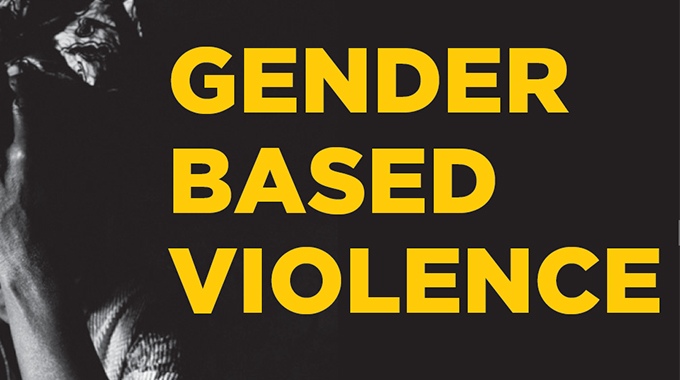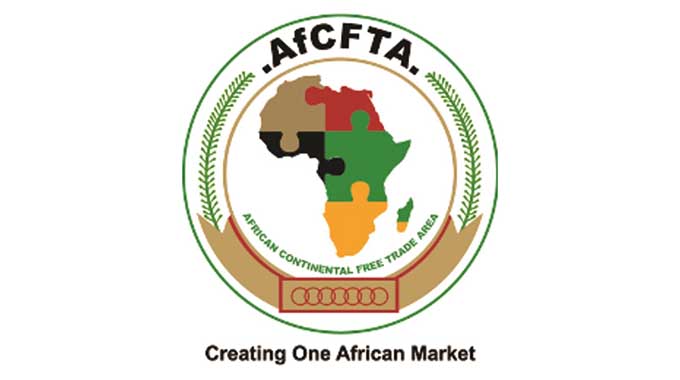EU supports efforts to tackle GBV in Zim

Frank Porte Correspondent
November 25 marked the beginning of the 16 days set aside annually to reconfirm our commitment to fight and challenge violence against women and girls.
This year’s global theme is “Orange the world: end violence against women now!” while the national theme is “End violence against women and girls: No to child marriage”.
The 25th of November also marks the first anniversary of the adoption of the European Union’s Gender Action Plan III (2021-2025), an ambitious strategy to promote gender equality and women’s empowerment in the EU’s external relations.
The GAP III is the EU’s blue print for building a gender-equal world which aims to curb the rise of inequalities in the difficult context created by Covid-19, and to accelerate progress on gender equality and women’s empowerment as a key aspect of building back better.
Gender equality is a core value of the EU and a universally recognised human right, as well as an imperative to well-being, economic growth, prosperity, good governance, peace and security.
The EU has placed gender equality at the centre of development cooperation and this is explicitly reflected in our new development programme, the Multi annual Indicative Programme for Zimbabwe that runs from 2021 to 2027.
We have stepped up our response to gender equality ensuring that at least 85 percent of all new programmes will have gender equality and women’s and girls’ empowerment as a significant or as a principal objective by 2025.
The Epworth safe market and the One Stop centre, launched recently, is among the various actions implemented under the auspices of the Spotlight Initiative (SI) to end violence against women and girls worldwide.
The EU has invested US$500 million globally and US$30 million in the SI in Zimbabwe in support of its objective of tackling GBV in a comprehensive manner.
Violence against women and girls, whether occurring in the public or private sphere, constitutes a serious violation of their human rights and is a major obstacle to the achievement of equality between women and men.
The safe market is the first of its kind in Zimbabwe and we are proud to be associated with this progressive development that will see women engage in economic activities in a safe and clean environment that also promotes the well-being of children.
Women’s safety in public spaces is a huge area of concern because it affects women’s ability to participate in public life and to contribute to the social, economic and political development of the country.
The Constitution of Zimbabwe recognises women as equal citizens and promotes their equal participation in all spheres of life.
The safe market will thus provide a conducive environment for women to conduct their business freely without fear from violence and harassment and enhance women’s economic empowerment.
The safe market is also appropriate in the current context of the Covid-19 pandemic as it allows the traders to take the necessary precautions against the spread of diseases.
Going forward it is important to put in place an effective mechanism for maintenance and governance to ensure the sustainability of the market as well as a transparent and non-discriminatory beneficiary selection procedure.
The Epworth One Stop centre (OSC) was also launched at the Epworth Polyclinic.
The One Stop Centre model is the epitome of a coordinated response to GBV and has demonstrated positive results in increasing access to formal support services, providing a comprehensive support package.
It is survivor centred and minimises additional trauma for the survivors by assisting them to access all the necessary services under one roof.
The OSC is particularly relevant under the current Covid-19 context and its resultant periodic restrictions on movement.
This particular centre will provide Sexual and Reproductive Health and Rights services, health care, psycho-social support, legal assistance and advice and child friendly services.
It will also partner with the Zimbabwe Republic Police (ZRP) Victim Friendly Unit.
In that regard, I am happy to report that recently, the SI handed over DNA testing equipment to the ZRP forensic science lab to enable them to speedily analyse and process sexual assault evidence.
The SI has also facilitated the development of the High Level Political Compact (HLPC) to end violence against women and girls.
The HLPC and its implementation plan is a demonstration of Zimbabwe’s commitment at the highest level to end violence against women and girls.
I eagerly look forward to the full implementation of that plan by the Government as it will make a life free from all forms of violence a lived reality for girls and women.
This year’s national theme for the 16 days, “End violence against women and girls Now: No to child Marriage” is indeed pertinent.
Zimbabwe is among the top 20 African countries where child marriages are prevalent.
According to the Zimbabwe National Statistics Agency (ZIMSTATS), one in three girls under the age of 18 is married, and girls in the rural areas are two times more likely to be married than their urban counterparts.
Child marriage is a harmful practice that violates the rights of the child and robs children of their childhood and in most cases, results in increased poverty.
Reports in the media and of research undertaken by women’s rights organisations indicate an increase, not only of GBV cases during the Covid-19 induced lockdowns, but also in cases of child marriages.
We all need to stand up, speak out and act against child marriages so that girls can be children first before they become wives and mothers.
Child marriages should not be normalised in any society and I would like to call upon the ZRP to thoroughly investigate child marriage cases and obtain justice for the victims.
I also call upon the Parliament of Zimbabwe to expedite the passing of legislation that will protect girls from early marriage.
I would like to commend all the stakeholders who are working together from different angles to promote gender equality and women’s empowerment and to end all forms of violence against women and girls.
It is my sincere hope that the SI will indeed bring a massive positive transformation for women and girls in Zimbabwe, in as far as their safety and well-being is concerned.
I have said it many times before and I will say it again now: violence is not irreversible. It has a solution, and it lies with all of us.
Let us ensure that no one is left behind!
Frank Porte, is head of cooperation, Delegation of the European Union to Zimbabwe









Comments